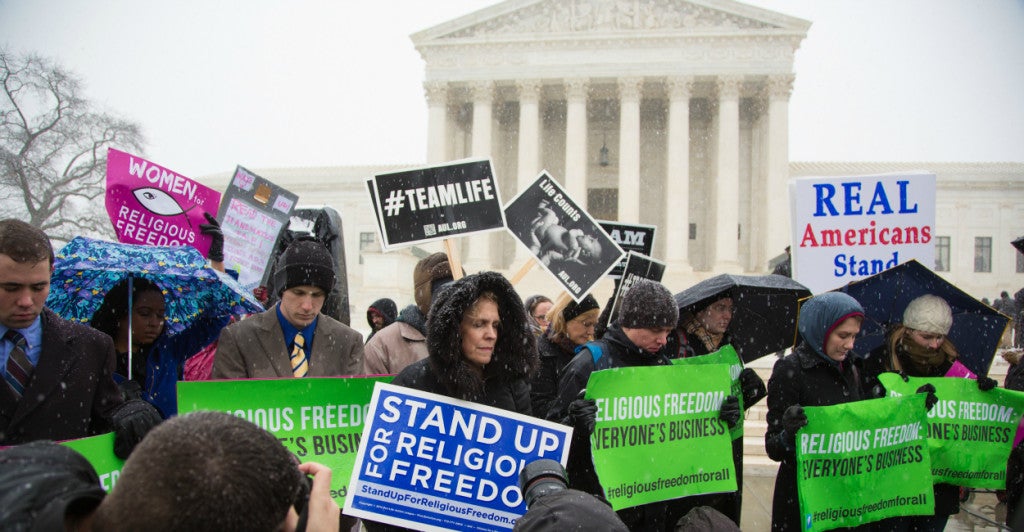A 168-year-old Christian college in Pennsylvania is going to the U.S. Supreme Court to defend its refusal to obey an Obama administration mandate to provide what the school considers abortion services to employees.
Geneva College, near Pittsburgh, filed a lawsuit against the Obama administration in 2012 over the Obamacare mandate requiring employers to offer employee health plans that cover all federally approved birth control methods.
The administration argues that its mandate offers an accommodation for religious employers who object to providing birth control—or certain forms of it. It requires the employer to submit a form authorizing a third-party administrator to pay for the required coverage.
“It’s not about access; it’s about our beliefs and the sanctity of life,” Sue Thompson, Geneva College’s benefits and compensation specialist, says in a video produced by the Christian legal group Alliance Defending Freedom.
Geneva College has no problem with 16 of the 20 approved contraceptives. But the college contends that the Obamacare provision burdens its constitutional right to free exercise of religion because it still forces school administrators to “trigger” provision of what they believe are abortion-inducing drugs and devices.
Elizabeth Slattery, a legal fellow at The Heritage Foundation’s Edwin Meese III Center for Legal and Judicial Studies, says that regardless of one’s position on contraception or abortion, Geneva’s religious liberty must be protected.
“You don’t have to share Geneva College’s opposition to abortion to recognize that the government should not be able to force Americans to give up their deeply held beliefs simply because they step outside the four walls of a church to educate the next generation,” Slattery told The Daily Signal.
The U.S. Supreme Court is expected to hear the case, Geneva College v. Burwell, in March along with six other challenges to Obamacare’s so-called contraceptive mandate.
Others call it an anti-conscience mandate because it will override or impose financial penalties on employers if they do not violate deep religious beliefs.
Founded by the Reformed Presbyterian Church of North America in 1848, Geneva College in Beaver Falls, Pa., carries on a tradition of Christian education through core Bible classes. It opposes abortion and abortion-inducing methods of birth control.
Thompson, the school’s benefits specialist, says in the video:
When it comes to contraceptives, there are 20 that the Affordable Care Act mandates. Of those, we provide 16. There are only four that we are not willing to provide, and those are the abortifacient drugs that would end a child’s life in the womb.
Geneva argues that the administration’s requirement is a violation of the Religious Freedom Restoration Act, which protects a person’s exercise of religion. Under it, the government is allowed to impose a burden on that right only:
… if it demonstrates that application of the burden to the person: (1) is in furtherance of a compelling governmental interest; and (2) is the least restrictive means of furthering that compelling governmental interest.
“The Obama administration’s alternate compliance mechanism involves far more than Geneva College sending notification of its religious objection [to providing certain contraceptive drugs and devices],” Alliance Defending Freedom, which represents the college, wrote in a case summary.
“The alternative mechanism legally and practically serves to bring about the provision of those drugs and devices, since the government forces the religious institution to contract for the services in their health plans.”
The 3rd Circuit Court disagreed in a Feb. 11 ruling, writing:
The self-certification form does not trigger or facilitate the provision of contraceptive coverage, because coverage is mandated to be otherwise provided by federal law.
Federal law, rather than any involvement by the appellees in filling out or submitting the self-certification form, creates the obligation of the insurance issuers and third-party administrators to provide coverage for contraceptive services.
The Supreme Court is expected to issue a decision in June.
